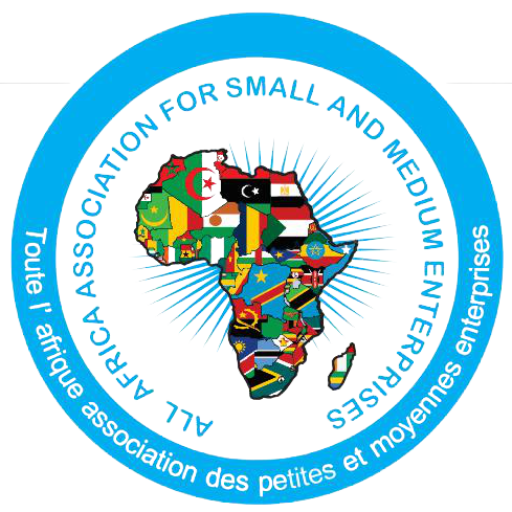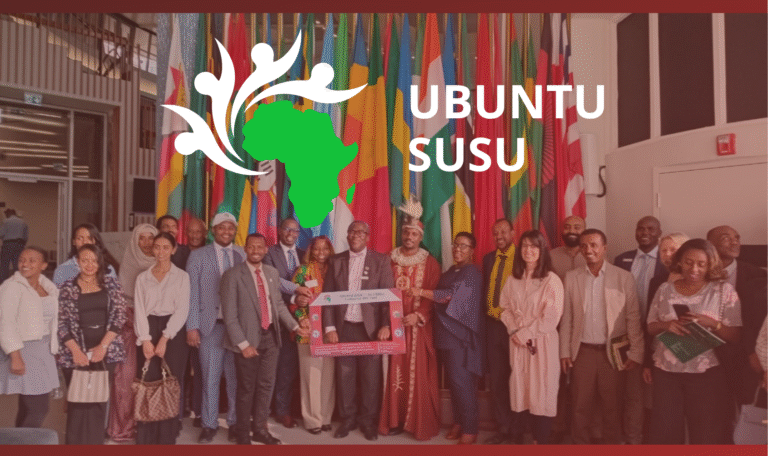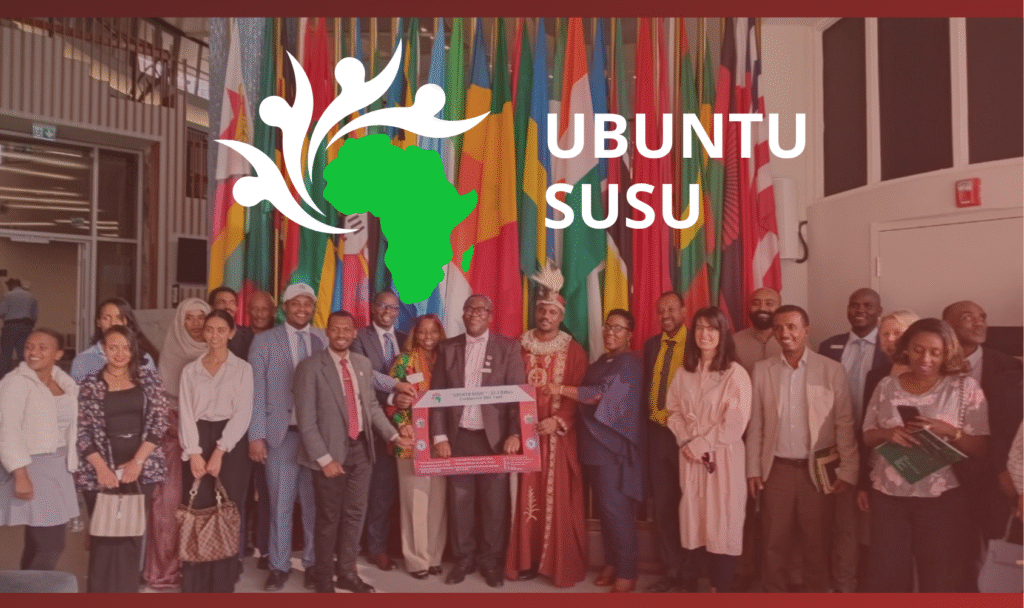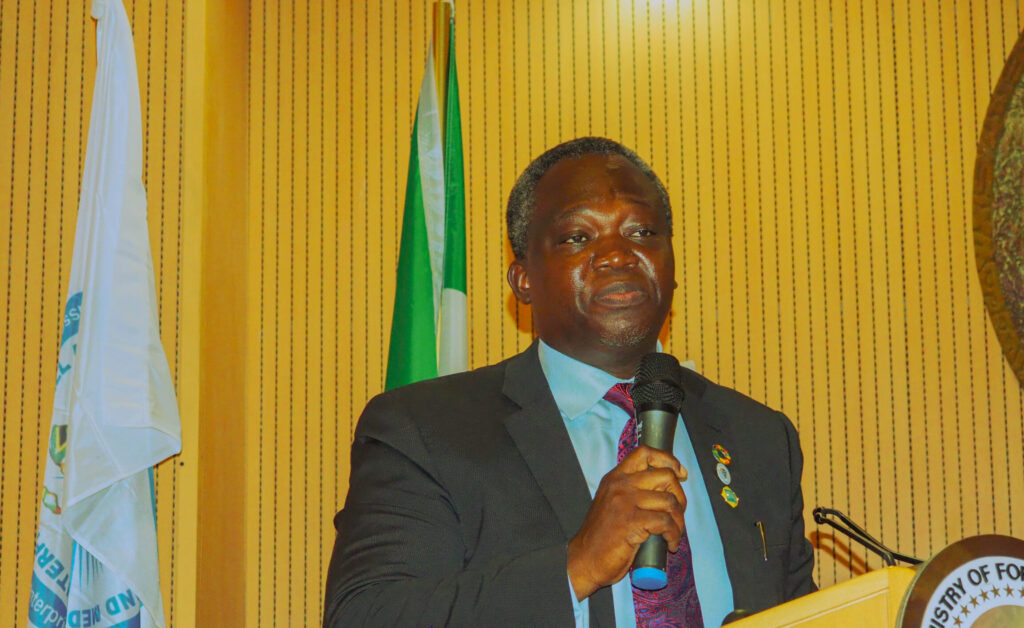At the recent ITC side sessions of the Global SME Ministerial Meetings held in Johannesburg, South Africa, The President, AAASME had the honour of speaking on a vital topic: the role of Trade Promotion Organizations (TPOs) in unlocking the full potential of the African Continental Free Trade Area (AfCFTA) for Small and Medium Enterprises (SMEs). “This conversation couldn’t have come at a more critical time” he said, while he continued.
With AfCFTA opening up the world’s largest single market: 1.4 billion people and a GDP of $3.6 trillion; it presents a historic opportunity for African SMEs. But to seize this moment, TPOs across the continent must collaborate, innovate, and lead from the front.

1. TPO Perspectives on AfCFTA: Opportunities and Challenges
Opportunities Identified by TPOs
-
Market Expansion: AfCFTA’s unified market allows SMEs to tap into regional value chains and scale beyond their home countries.
-
Tariff Elimination: The removal of 90% of intra-African tariffs significantly reduces trade costs for SMEs.
-
Sectoral Growth: TPOs have pinpointed high-growth sectors like agro-processing, textiles, and digital services that stand to benefit most from AfCFTA.
-
Increased Investment: By curating bankable SME projects, TPOs are well-placed to attract regional and international investors and facilitate joint ventures.
Challenges Facing SMEs
-
Awareness Deficits: Many SMEs; especially informal and micro-enterprises, remain unaware of how AfCFTA works or how to benefit from it.
-
Non-Tariff Barriers (NTBs): Bureaucratic bottlenecks and inconsistent standards remain significant trade obstacles.
-
Capacity Gaps: SMEs often lack export readiness in areas such as packaging, certification, and digital trade.
-
Infrastructure Deficits: Poor logistics infrastructure continues to limit trade competitiveness.
Key Requests from TPOs
-
Harmonized trade regulations and digital trade platforms across the continent
-
Dedicated AfCFTA desks within TPOs to support SME engagement
-
Public-private partnerships to co-fund SME capacity-building programs
2. The Strategic Role of TPOs in Realising AfCFTA for SMEs
TPOs must evolve beyond their traditional roles. To truly drive SME participation in AfCFTA, they must embrace five core strategic functions:
A. Bridging the Information Gap
-
Develop easy-to-understand AfCFTA toolkits and guides
-
Facilitate B2B matchmaking across countries and regions
B. Building SME Competitiveness
-
Deliver export-readiness training on standards, digital marketing, and e-commerce
-
Collaborate with financial institutions to offer AfCFTA-compliant financing solutions
C. Advocating for Policy Change
-
Monitor and report NTBs through AfCFTA’s official channels
-
Push for gender-responsive trade programs to support women-led SMEs
D. Driving Data-Backed Trade Facilitation
-
Share timely market intelligence via digital portals
-
Establish collaborative networks with AfDB, ITC, AUDA-NEPAD, Afreximbank, and others to pool resources
E. Leading Digital Transformation
-
Create virtual trade hubs for SME certification, logistics, and documentation
-
Pilot blockchain-based systems to improve trust and reduce trade fraud
3. A Clear Call to Action for TPOs
To amplify impact, TPOs across Africa must:
-
Form an AfCFTA TPO Alliance – Collaborate through joint trade fairs, shared databases, and harmonized strategies
-
Leverage the AfCFTA Adjustment Fund – Use these funds to co-finance SME trade-readiness programs
-
Establish One-Stop SME Trade Support Hubs – Offer integrated services like legal advisory, logistics, certification, and trade finance in one place
Conclusion
AfCFTA is a generational opportunity to transform the economic landscape for African SMEs. But its promise won’t be fulfilled automatically. TPOs must step up, not just as advisors, but as tech-savvy orchestrators, connectors, and advocates for SME success.
Our ability to collaborate and reimagine how we support SMEs will determine whether AfCFTA delivers lasting prosperity or remains a missed opportunity.
Dr. E.J. Eradiri is the President of the All Africa Association for Small and Medium Enterprises (AAASME), AfCFTA Specialist and a leading voice on SME policy, entrepreneurship, and trade across the continent.






